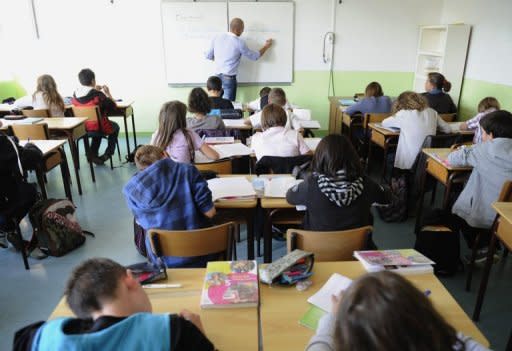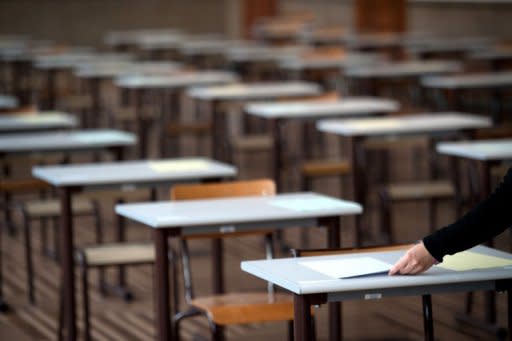Western pupils lag Asians by three years: study
Western schoolchildren are up to three years behind those in China's Shanghai and success in Asian education is not just the product of pushy "tiger" parents, an Australian report released Friday said. The study by independent think-tank The Grattan Institute said East Asia was the centre of high performance in schools with four of the world's top systems in the region -- Hong Kong, South Korea, Shanghai and Singapore. "In Shanghai, the average 15-year-old mathematics student is performing at a level two to three years above his or her counterpart in Australia, the USA and Europe," Grattan's school education programme director Ben Jensen said. "That has profound consequences. As economic power is shifting from West to East, high performance in education is too." Students in South Korea were a year ahead of those in the US and European Union in reading and seven months ahead of Australian pupils, said the report, using data from the OECD's Programme for International Student Assessment. The PISA, pioneered by the Paris-based Organisation for Economic Cooperation and Development, has become a standard tool for benchmarking international standards in education. The study said that while many OECD countries had substantially increased funding for schools in recent years, this had often produced disappointing results and success was not always the result of spending more money. Australian schools have enjoyed a large increase in expenditure in recent years, yet student performance has fallen while South Korea, which spends less per student than the OECD average, had shot up, it said. "Nor is success culturally determined, a product of Confucianism, rote learning or 'tiger mothers'," the report said, the latter a reference to ethnic-Chinese parents who push hard for their children to succeed. It said Hong Kong and Singapore had made major improvements in reading literacy in the past decade, while the tests by which the students were ranked was not conducive to rote learning as they required problem solving. The report said the best systems focused on a relentless, practical focus on learning and teacher education, mentoring and professional development, rather than greater spending. The East Asian systems were also unafraid to make difficult trade-offs to achieve their goals, with Shanghai, for example, raising class sizes to up to 40 pupils but giving teachers more time to plan classes and for research. Prime Minister Julia Gillard stressed the need for Australia to perform well given its place in the most economically dynamic part of the world. "Four of the five highest performing schools system in the world are in countries in our region, so we've got to make sure we not only keep up but we win that education race," she said. Education expert Kevin Donnelly, director of the Melbourne-based think-tank Education Standards Institute, agreed that spending money by itself was not enough to lift performance. "America for example spends the most compared to the other OECD countries in terms of education but only gets very average results," he told AFP. "Korea spends a lot less but they achieve at the top of the table." But Donnelly said cultural factors did play a role. "In a lot of the Asian countries, there is a Confucian ethic -- they respect authority, they respect their parents... they are motivated to work hard," he said. "Some of the greatest problems in Australian classrooms, when teachers are surveyed, relate to misbehaviour and poor discipline. That's the elephant in the room in terms of Australian education."



